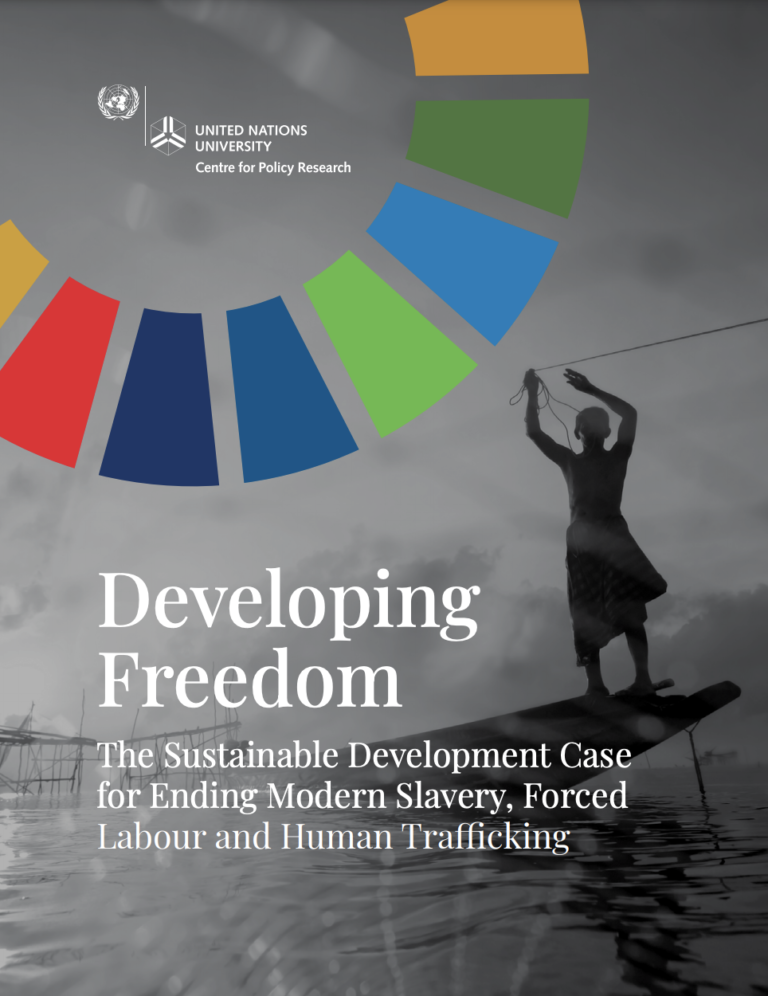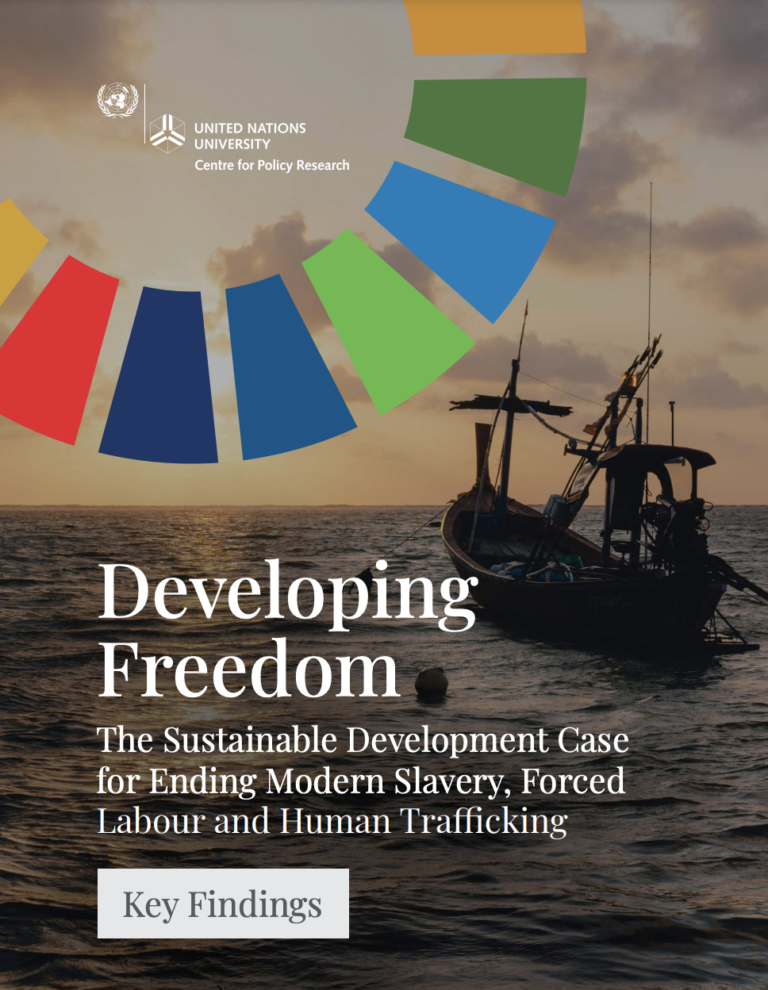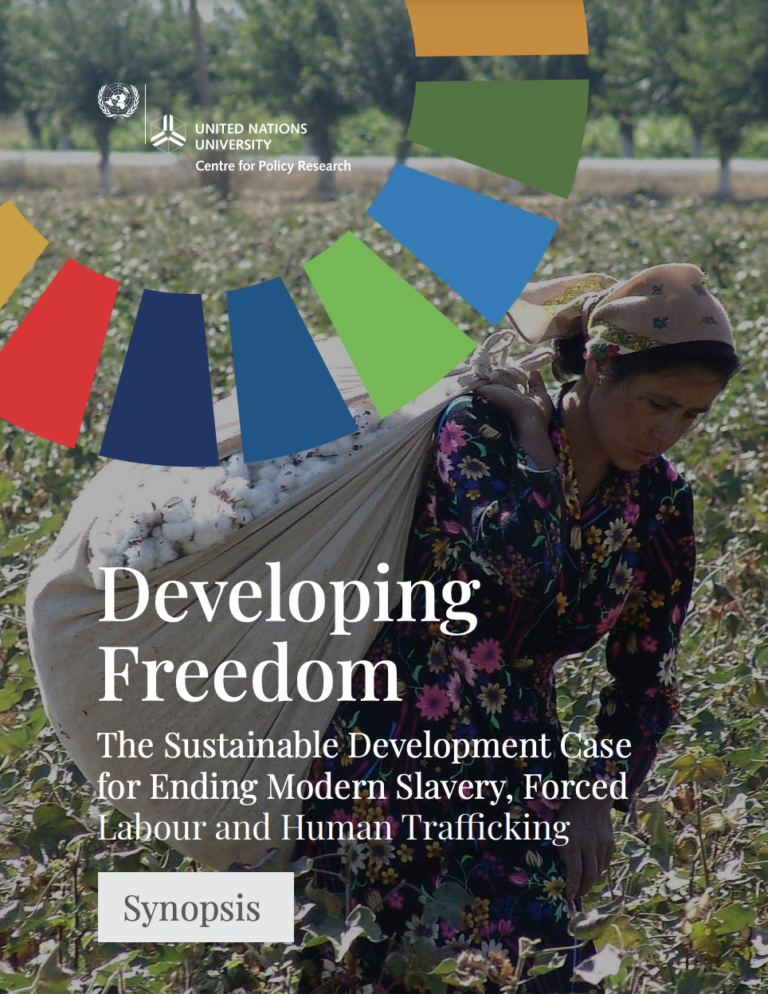40.3 million people – around 1 in every 185 people alive – experienced modern slavery or forced labour in 2016. States have committed to take immediate and effective measures to end modern slavery, forced labour and human trafficking by 2030, and child labour by 2025 (Target 8.7 of the Sustainable Development Goals). Since 2017, 92 countries, including the UK, US, China and Saudi Arabia, have committed to a Call to Action calling for ending modern slavery to be “a priority” for multilateral development action. Yet development sector voices are often notable for their absence from global antislavery discussions.
This study is the result of eighteen months of work to answer a simple question: How can fighting slavery contribute to sustainable development? We used comprehensive literature reviews, quantitative analysis, surveys and mixed methods case studies to develop a thorough answer to that question. In summary, our answer is: By maximizing people’s economic agency – their ability to make choices, for themselves, about how to develop and use their own capabilities and how to use factors of production such as land, labour and capital.



